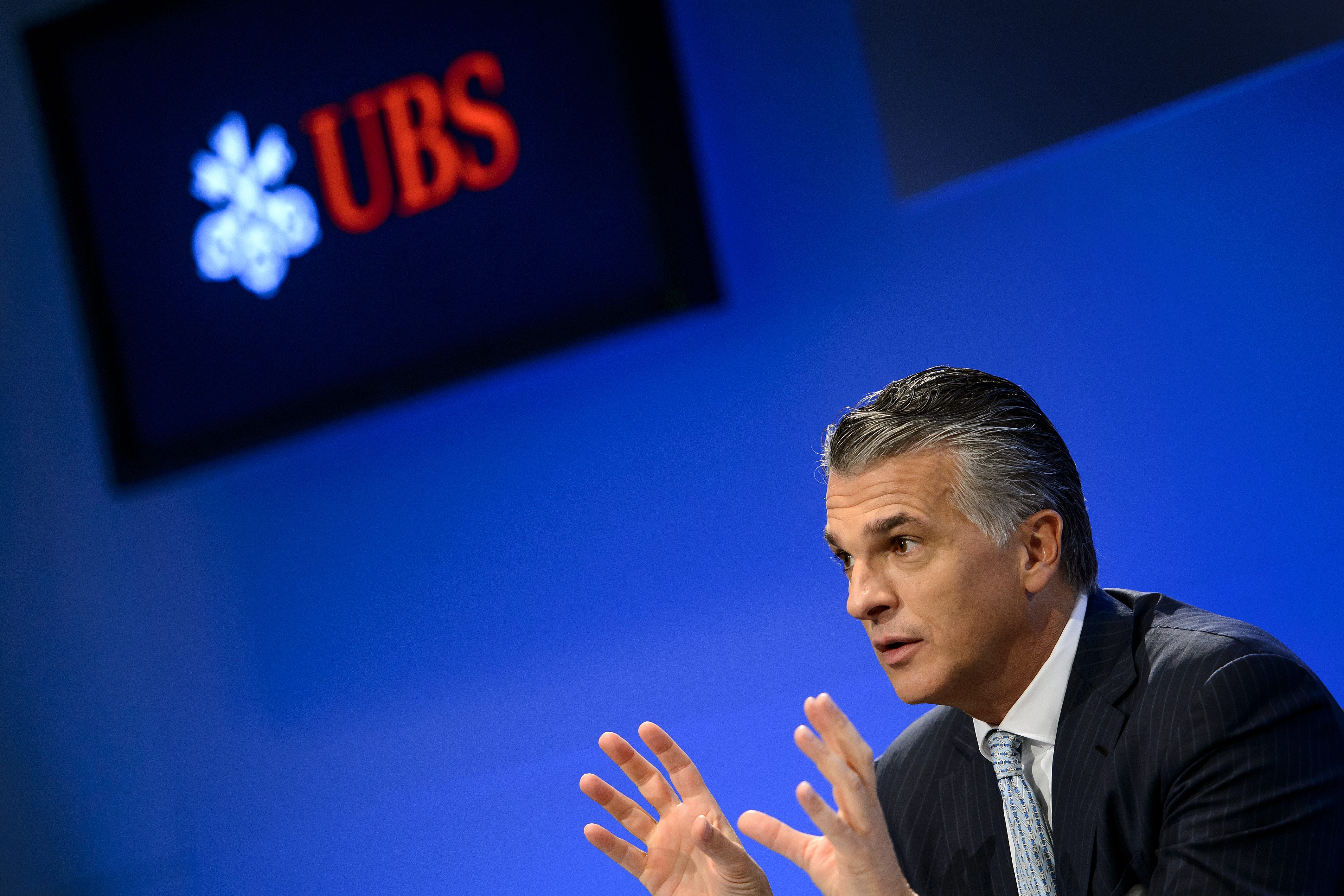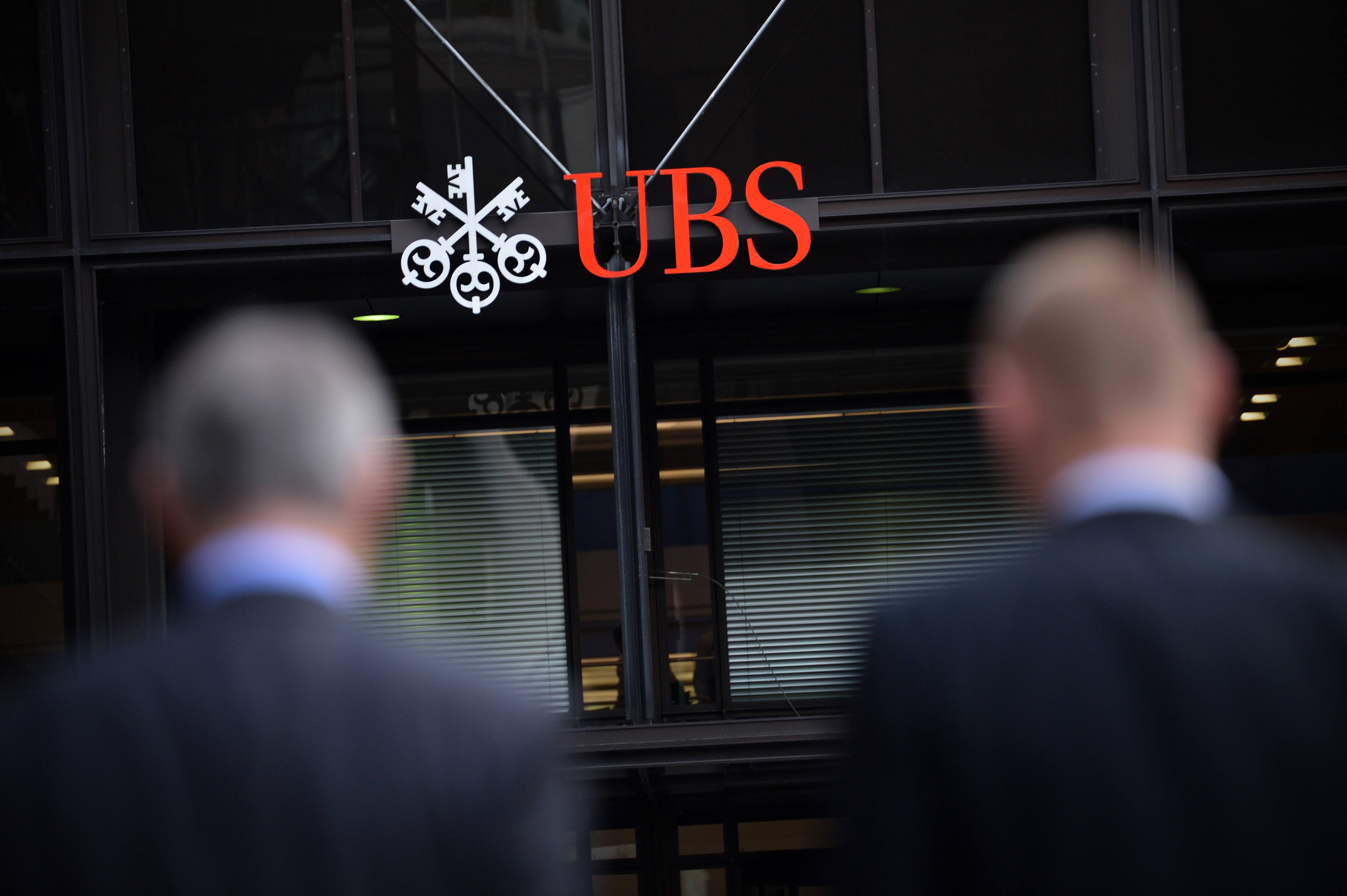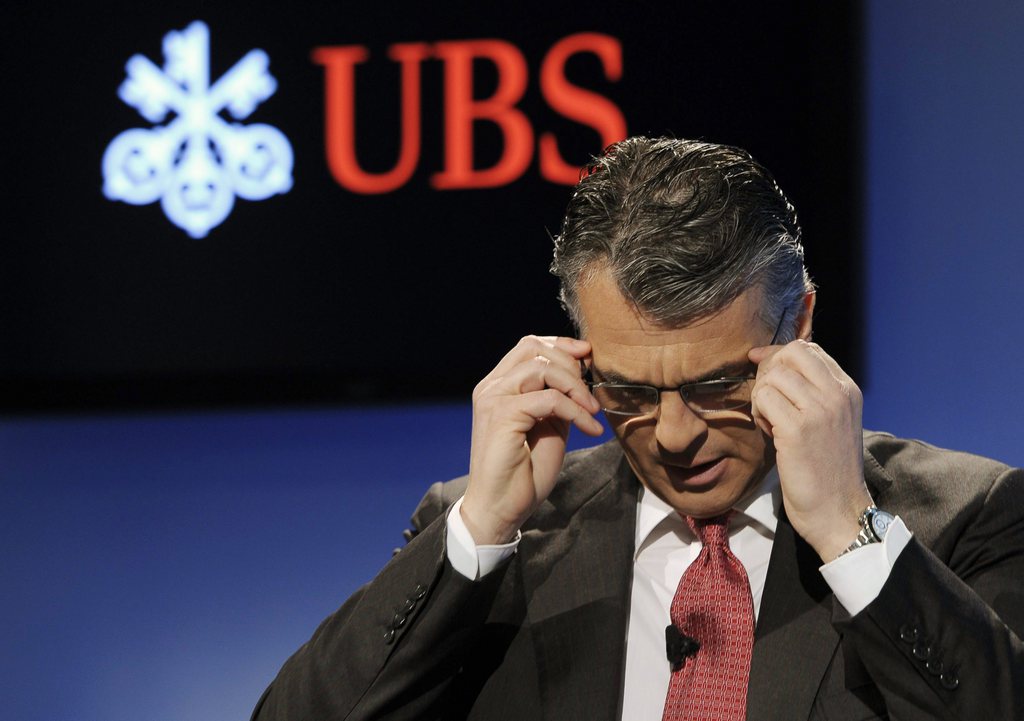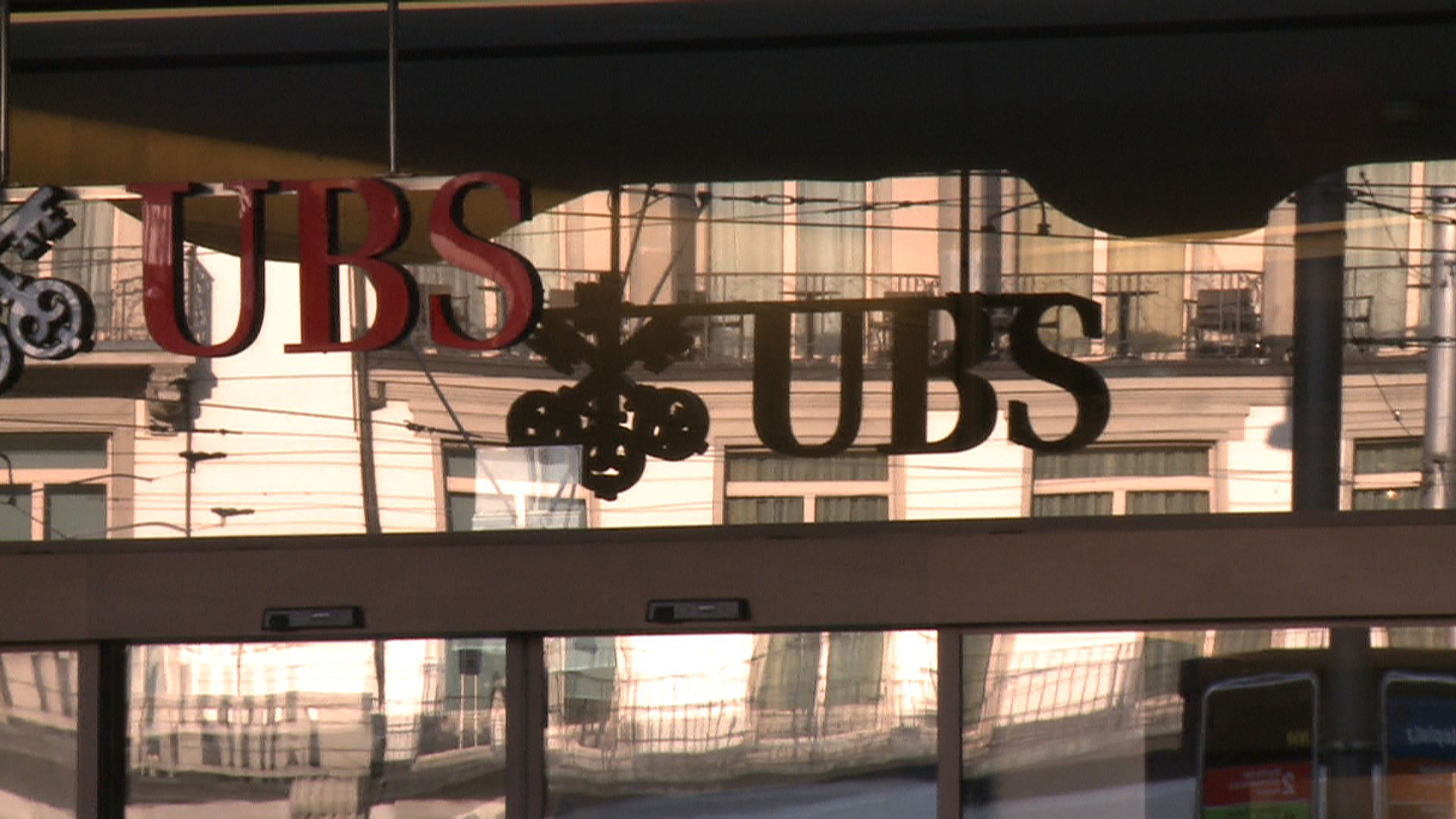Papers see UBS move as “unavoidable”

Swiss front pages on Wednesday were shared between Sergio and Sandy, with the job cuts announced by UBS CEO Sergio Ermotti getting the headlines alongside dramatic images of the storm that has wreaked havoc across the United States.
Despite regretting the job losses – 10,000 positions are being cut, 2,500 of which in Switzerland – all newspapers agreed Ermotti was steering UBS in the right direction.
“The penny has dropped” was the headline of the editorial in tabloid Blick. “The decision hurts, but it is right, unavoidable.”
Talking about “a black day for our country”, it said Ermotti’s predecessor Oswald Grübel should have cleared out the investment banking stable, but after the financial crisis and the state bail-out he built it up.
UBS, it concluded, must remember why Swiss taxpayers saved it: “not for deals with rich people in Asia and Latin America, but for the 20,000 staff in Switzerland who work hard and honestly for the bank”.
The symbolic darkness continued on the front page of Zurich’s Tages-Anzeiger, whose main picture was of New York hit by a blackout.
“Saying goodbye to a sacred cow” was the headline in the paper’s editorial, which also blamed Oswald and previous president Kaspar Villiger for embracing the credo of a bank with three legs – one of which is investment banking, “which even after UBS’s steep fall was taboo”.
The real reason, however, why investment banking was jettisoned, according to the Tages-Anzeiger, was that regulators, above all the Swiss National Bank, had tightened the rules so much that investment bankers had run out of steam.
So much capital was needed for risky business that it was no longer profitable – “and what isn’t profitable doesn’t create end-of-year bonuses. That’s the language that bankers understand”.
In a Tages-Anzeiger survey of almost 2,000 readers, 90 per cent agreed that reducing investment banking was the right strategy for UBS.
“Radical step”
The Neue Zürcher Zeitung (NZZ) also devoted the main front page picture to Sandy – hundreds of flooded taxis in New Jersey – but the lead story was UBS.
Ermotti’s decision was a “radical step”, but it said investors could hope for better times “after a long lean period”.
“The streamlining of the bank will with some degree of certainty have a positive effect on operational efficiency and therefore profitability.”
It admitted that the future of the bank’s staff was less promising – “the return of reason will cost thousands of jobs” – but in general it welcomed the move.
“In abandoning excessive visions, UBS – although the learning process dragged on for years – has taken a giant step. This shows courage and earns respect. And if it’s true that the future belongs to the brave, UBS can look ahead with more confidence.”
Swiss image
In the French-speaking part of the country, Le Temps in Geneva went for exactly the same front page as the NZZ, but its leader writer said Tuesday’s decision bore the mark of new UBS president Axel Weber.
The rogue trader in London (see box) had undoubtedly sped up the thought process, but “the former head of [Germany’s] Bundesbank, renowned for his rigour and integrity, was able to benefit from the situation to stamp his mark on the new UBS”.
The paper pointed out that while Swiss financial markets were still paying for the consequences of [the subprime, too-big-to-fail] affair, on Tuesday UBS announced a record year in the private banking sector – in the United States.
“Proof, for the doubters, that [in the US] they pardon those who have paid for their mistakes.”
The Tribune de Genève said Sergio Ermotti had turned an important page in the bank’s history – opened, it said, by Marcel Ospel, UBS CEO from 2001 to 2009: “that of easy money, complicated financial products, quick profit and dizzying losses”.
UBS would certainly be a bit less flamboyant and adventurous – “basically a bit more like the image of Switzerland”.
Scarred by scandals and losses, on Tuesday Swiss bank UBS unveiled a plan to overhaul its global operations that will see it cut thousands of jobs as it drops risky trading activities and restructures its investment banking unit.
Switzerland’s biggest bank has for years been trying to reshape its business and clean up its image as it tries to recover from a damaging US tax evasion dispute, a scandal over unauthorised trades and a slew of bad investments.
Tuesday’s plan represented a sudden acceleration in this turnaround effort.
UBS will cut 10,000 jobs, on top of 3,500 shed last year, as it drops out of trading in fixed income – which includes bonds and currencies – and rejigs its investment banking.
It will cut 3,000 of those jobs at its US operations in Stamford, near New York City. Another 4,500 will be axed in London, with the remaining 2,500 in Switzerland.
Investors welcomed the restructuring announcement, focusing on the savings it will create. UBS stock rose 5.9 per cent to SFr13.89 on Tuesday – on top of a 7.3 per cent rise on Monday on speculation over the cuts.
In 2008, UBS was forced to seek a bailout from the Swiss government when it was hard hit by the financial crisis and its fixed-income unit had more than $50 billion in losses.
A former UBS trader has been facing trial in London this month on charges of committing fraud that cost the bank $2.3 billion. He has told the jury that the losses came after senior traders persuaded him to change from a bearish to a bullish point of view in July 2011.
US authorities fined UBS $780 million in 2009 for helping US citizens avoid paying taxes. The US government has since been pushing Switzerland to loosen its rules on banking secrecy.
In April, CEO Sergio Ermotti said Switzerland’s tax disputes with the United States and some European nations were “an economic war” putting 20,000 jobs at risk.
UBS is also one of several global banks being investigated in the US and other countries for alleged rigging of a benchmark interest rate known as Libor.
The investment banking unit, meanwhile, is struggling to meet new global rules for banks’ capital reserves. The new rules require banks to increase the amount of capital they hold to offset risky assets on their balance sheets. That hurts profitability – in the third quarter, UBS booked a charge of SFr863 million to account for these new rules.

In compliance with the JTI standards
More: SWI swissinfo.ch certified by the Journalism Trust Initiative






You can find an overview of ongoing debates with our journalists here . Please join us!
If you want to start a conversation about a topic raised in this article or want to report factual errors, email us at english@swissinfo.ch.